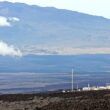A dangerous moment for climate change and for science
November 22, 2016
The Trump administration may well continue to trash climate science in the months ahead, thereby damaging science, the reputation of the United States, and the planet. Nonpartisan alliances, in which scientists join tough-minded captains of industry, military officers, and others, could provide the needed counterweight, jointly promoting climate change as a risk management problem requiring immediate action.
For many who have concluded that climate change is a central challenge to global well-being, sobering messages started arriving well before Election Day. Neither party wanted to talk about it. Democrats spoke about green jobs from wind and solar power, and Republicans spoke about reviving coal, but that was about it. A country so conflicted faced an enervating struggle, whoever won.
With Donald Trump’s victory, however, the scrimmage line for climate change has moved dramatically, and the game has become more dangerous. The most important argument now is whether climate science is to be taken seriously. During the primaries, nearly all of the Republican presidential candidates aligned themselves with the view that there is no need now to confront climate change–either because there is no trustworthy science to build on or, even worse, because science doesn’t matter.
In the months immediately ahead, potential presidential appointees are likely to trash climate science again. Again, they will call it a “hoax.” Some will be candidates for senior positions in the Department of Energy, the Environmental Protection Agency, the National Oceanic and Atmospheric Administration, the National Aeronautics and Space Administration, and the National Science Foundation. They may make their statements in widely televised confirmation hearings. It is already time for the science community to prepare to refute these claims effectively. Two conditions for success seem necessary: Hardheaded leaders in business and the military, especially those with influence within the Republican Party, must become allies. And scientists must find innovative ways to address the dissident views of climate change science that have had such a strong influence on the Republican Party.
The public policy problem of climate change is, at its core, a problem of risk management in the face of imperfectly understood risks. As a consequence, business and military leaders are natural partners, because they understand risk management. Captains of industry don’t bet their companies on outcomes that they prefer but have low probability. Nor are military leaders trained to underestimate threats. Instead, leaders in these arenas assess and reduce risks, invest in damage mitigation, and prepare for disruption. They go with the data and the odds, and they have an interest in the appointment of government officials who think strategically and understand urgency.
Today, when climate change is presented to the public by governments, environmental organizations, and the media, the emphasis is only occasionally placed on the management of uncertain risk. More often, the message is that there is a boundary between safety and catastrophe that must not be crossed–there is a cliff. The nonpartisan alliances that will be required in the United States in the next years will share more common ground if the risk management framing of climate change comes to the fore and the cliff metaphor recedes.
As for the politically powerful dissident voices who challenge the legitimacy or the quality of climate science, the climate science community must pay greater attention to them. The National Academy of Sciences and similar institutions must promptly organize fora where mainstream scientists and dissidents treat each other respectfully in pursuit of the common goal of sorting wheat from chaff. The public can learn that there is nearly complete agreement that:
- The Earth is a comprehensible system, and scientists have achieved a deep understanding of how it works.
- The evidence underpinning climate science comes from four kinds of investigations: reconstructions of the Earth’s deep past; contemporary measurements (from space, the atmosphere, the oceans, and the land); modeling of components (clouds, ice sheets, ocean biota, forests) drawing on physics, chemistry, and biology; and numerical simulations at various levels of complexity.
- The human species has become an exuberant participant in the Earth system and is already modifying it substantially.
The public can also learn that although much of climate science is well established, some issues remain contentious.
The media that promote and disseminate science can help greatly in this pursuit. For example, some contrarians insist that human activity will definitely have only minimal consequences for the climate. Such statements are nearly always flawed. They usually amount to saying that we could be lucky. Yes, we could, but we could also be unlucky. Severe consequences of climate change could arrive early rather than late. A wide range of outcomes of climate change are consistent with climate science. Effective communicators can invent clever graphics to convey the false certainty implicit in many contrarian views.
The United States has compelling reasons to continue to drive the international climate change agenda, much as it drove the Paris Agreement last year. Diplomats around the world will soon be negotiating new instruments that address the upside potential and downside peril of both global nuclear power and the aggressive management of the biosphere for climate-driven purposes. Industries not yet born will deliver “smart” buildings and infrastructure to the world. The US will not want to hang back.
But if the United States government slides into obscurantism, where science can be discarded when it leads to unwanted results, its influence in international affairs will sustain lasting damage. Already, the United States delegitimizes science with an intensity otherwise found only in countries whose governments adhere to religious fundamentalism. Science as a privileged way of knowing is not in jeopardy in most of the world. Much of what Americans take for granted–from the magnetism of America’s universities which attract the world’s most talented students, to the unchallenged supremacy of English in international discourse–could ebb away.
The Paris Agreement features parallel voluntary actions by all nations. Each is allowed to tell the others: “I did it my way.” Accordingly, there is room for the United States to modify its current plan of action without weakening the agreement. Indeed, if the US were to make new commitments that have broad domestic support and evident durability, the result could be an even stronger agreement.
Author’s note: This commentary is dedicated to the memory of Ralph Cicerone (1943-2016), president of the National Academy of Sciences from 2005 to 2016, one of the great expositors of climate science.
Robert Socolow
senior research scholar
EXPERT COMMENTARY
Princeton University













